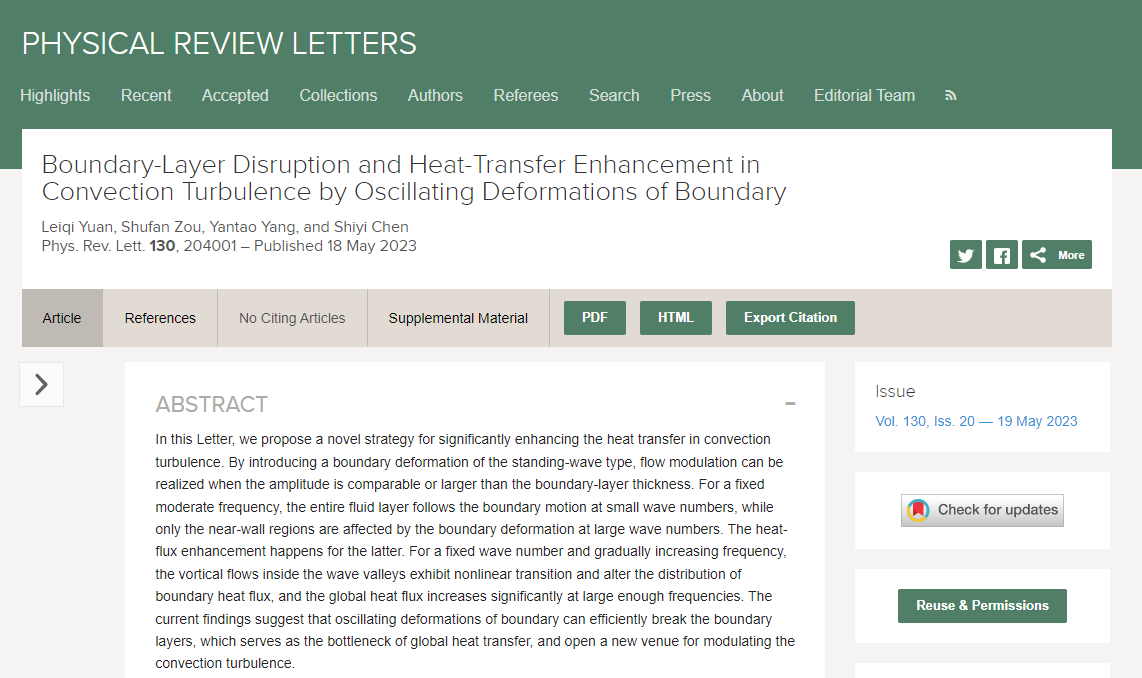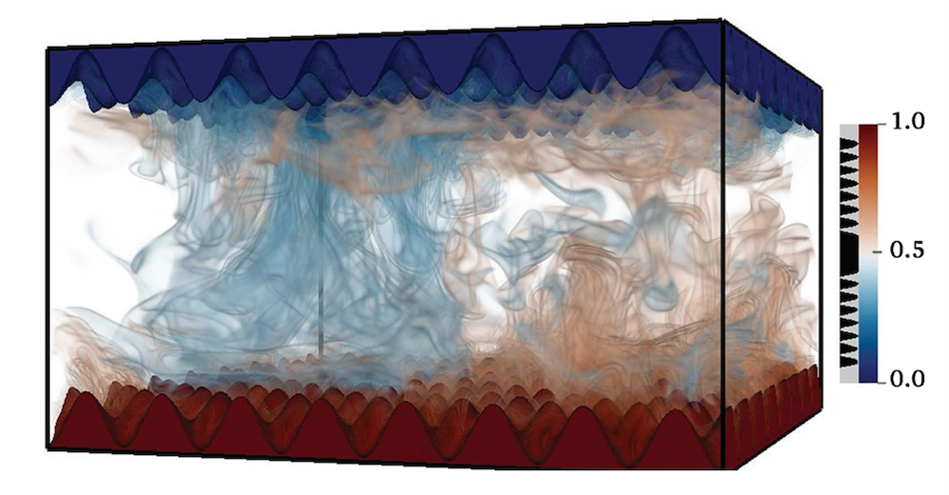PKU researchers make major progress in convective turbulence
Jun 07, 2023
Peking University, June 6, 2023: Researchers from the Department of Mechanics and Engineering Science at Peking University (PKU), led by Prof. Chen Shiyi and Prof. Yang Yantao, have recently proposed a groundbreaking mechanism to enhance the efficiency of heat transfer in convective turbulence. The paper has been published in the first-class journal Physical Review Letters, entitled “Boundary-Layer Disruption and Heat-Transfer Enhancement in Convection Turbulence by Oscillating Deformations of Boundary.”
Convective turbulence, driven by gravity-induced instabilities resulting from temperature gradients, is a prevalent occurrence in various natural flows, including the atmosphere, ocean, and mantle. It is referred to as an indispensable process for both heat and mass transport and finds practical applications in heat dissipation in devices and indoor temperature control.
However, the existing methods for regulating convective turbulence suffer from several drawbacks. They only function in a limited range of parameters, demand an extremely high frequency, and consequently, the overall heat transfer enhancement is restricted.
The PKU research team's novel approach focuses on introducing oscillating deformations in the form of standing waves in a flow system where the top is at a high temperature and the bottom at a low temperature, thus effectively modulating transport efficiency.
Figure 1
Figure 1 above vividly shows a typical flow field with boundary deformation.
The research results demonstrate that significant increases in heat flux can be achieved only when the amplitude of boundary oscillation approaches the thickness of the boundary layers. Notably, the dimensionless heat flux more than doubles when the dimensionless frequency precisely reaches 8. In essence, oscillating deformations of boundary can break the bottleneck of classic thermal convection in the boundary layer and open a new venue for modulating the convection turbulence.
doi: https://doi.org/10.1103/PhysRevLett.130.204001
Written by: Fu Jiaqi
Edited by: Dennis Meng
Source: College of Engineering

